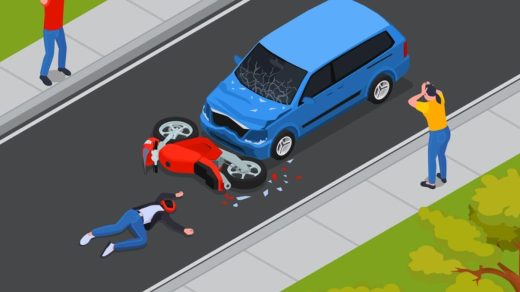Driving under the influence (DUI) is a serious offense across the United States, and Nevada is no exception.
When it comes to underage DUI, the laws and penalties are especially strict.
Nevada’s “zero-tolerance” stance on underage drinking and driving imposes harsh penalties on minors who are caught driving with any traceable amount of alcohol in their system.
Underage DUI Penalties in Nevada

This blog will outline the legal consequences and provide insight into the complexities of defending an underage DUI case in Nevada.
Understanding Nevada’s Underage DUI Laws
In Nevada, drivers under the age of 21 are subject to stricter DUI laws compared to adults.
The legal Blood Alcohol Content (BAC) limit for adults is 0.08%, but for drivers under 21, the BAC limit is only 0.02%.
This means that even a minimal amount of alcohol in their system can lead to a DUI charge.
Why the Zero-Tolerance Policy?
The state of Nevada adopted this policy to reduce DUI-related accidents among young drivers, who statistically have higher chances of being involved in alcohol-related accidents.
The zero-tolerance policy aims to discourage underage drinking and driving entirely.
Penalties for Underage DUI in Nevada
An underage DUI conviction can lead to severe consequences, impacting both the minor’s present circumstances and future opportunities.
Here are the penalties an underage driver might face if convicted:
- Fines and Community Service
- First Offense: For a first underage DUI offense, minors can face fines ranging from $400 to $1,000. Courts may also assign 50 to 100 hours of community service.
- Repeat Offenses: Repeat offenders face increased fines and additional community service hours.
- License Suspension
- A first-time underage DUI offense in Nevada results in a 90-day driver’s license suspension. If the individual is convicted again within seven years, the suspension can be extended to one year.
- Losing a driver’s license can affect employment and educational opportunities, particularly for young adults who rely on driving for transportation.
- Possible Jail Time
- Although Nevada often prioritizes fines and community service for first-time underage offenders, jail time is possible, especially for repeat offenders. First-time offenders may face two days to six months in jail if the situation is severe.
- Repeat offenses increase the likelihood of a jail sentence, as Nevada courts take DUI cases seriously to deter future offenses.
- Mandatory DUI Education Programs
- Nevada requires DUI education classes and possible substance abuse treatment for underage offenders. These programs educate young drivers on the dangers of impaired driving and aim to prevent future offenses.
- Courts may require participation in a Victim Impact Panel, where offenders learn firsthand about the consequences of DUI.
- Ignition Interlock Device (IID)
- In some cases, an Ignition Interlock Device may be required once the individual’s license is reinstated. This device prevents the car from starting if it detects alcohol on the driver’s breath, making it a strict deterrent against future drinking and driving.
Additional Consequences of Underage DUI
Aside from legal penalties, underage DUI can have lasting effects on a young person’s life:
- Academic Consequences: A DUI conviction may affect college admissions, scholarships, or participation in certain academic programs, especially those with strict codes of conduct.
- Employment Impact: Many employers run background checks, and a DUI on record may prevent young adults from getting jobs, particularly in fields that require a clean driving record.
- Insurance Hikes: A DUI charge, even for a minor, will lead to significant increases in auto insurance rates, as insurance companies consider DUI offenders to be high-risk drivers.
Legal Defense Options for Underage DUI
The complexities of Nevada’s underage DUI laws make it essential to work with a knowledgeable DUI Defense Attorney.
Here are some potential defenses an attorney may consider:
- Challenging BAC Test Accuracy: DUI Defense Attorneys often review the procedures used for BAC testing. If the test wasn’t administered correctly or the device was not calibrated, the results might be unreliable.
- Questioning the Legitimacy of the Traffic Stop: If the officer did not have probable cause to pull over the driver, the defense might argue that the stop was unlawful, which can result in evidence suppression.
- Seeking Reduced Charges or Alternative Sentencing: For first-time or low-BAC offenses, an experienced attorney might negotiate alternative sentencing options, like community service instead of jail time, or a reduced charge to lessen the long-term impact on the minor’s record.
Underage DUI Record Expungement in Nevada
While Nevada’s DUI laws are strict, young offenders might have the option to pursue expungement in certain cases, depending on the specifics of their conviction.
Expungement allows individuals to have their DUI record sealed, reducing the impact on their future.
However, it’s a complex legal process, and not all cases are eligible.
Preventive Measures and Final Thoughts
Understanding Nevada’s underage DUI penalties highlights the importance of making responsible choices.
The best way to avoid these penalties is to avoid drinking and driving altogether.
Young drivers should understand the seriousness of DUI charges and how a single mistake can lead to lasting consequences.
Also Check:
Conclusion:
If you or someone you know is facing an underage DUI charge, it’s crucial to seek legal guidance from an experienced DUI Defense Attorney who can navigate Nevada’s strict laws and work toward the best possible outcome.
A skilled Criminal Law Attorney in Las Vegas, like CEGA Criminal Law Group, is well-versed in Nevada DUI law and can help young offenders understand their options and defend their rights.

